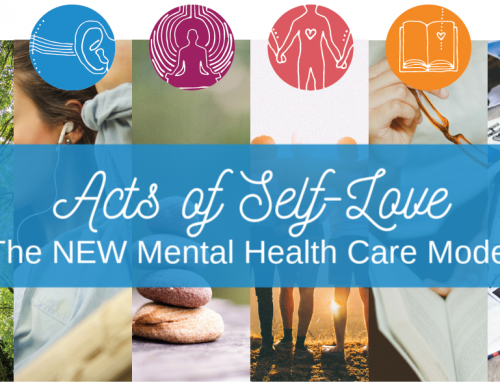My 8 year old daughter feels very maternal with her younger 3 year old sister, often feeling as if she must step in to correct and teach lessons. I’m often telling her she isn’t her mother, and she needs to let me do my job. However, that doesn’t stick for long before Lily is feeling the need to mother once again. So, last night, I decided if she’s going to mother anyway, I’d teach her a few tips to help her be more successful and to keep her less frustrated with her younger sibling.
This lesson came while having some family fun at a bowling alley. Lily was helping her sister grab her ball off the ball carrier followed by techniques to push the ball down the lane. Ivey, in perfect 3-year old fashion, refused almost all help and insisted she do all steps of bowling on her own. During one of their interactions, Lily went to hand a ball to Ivey, and Ivey banged her chin right into the ball. They both started wailing. Lily came to one side of me to cry and complain, and Ivey came to the other side to grab on and tell her story of pain. Lily’s story went like this:
“I was just trying to help out and Ivey got in my way! You need to tell her she needs to listen to what I have to say! You need to tell her I wasn’t trying to hurt her that it was the ball that hurt her!” Lily was issuing a lot of demands, and it was clear by her words that she felt bad about the ball hitting her sister, that she didn’t want to be seen as the “bad” sister, and that she wanted her sister to recognize her helpful efforts. Well, unfortunately, her sister is 3 years old and 3 year olds rarely recognized a good deed from anybody.
When I didn’t turn to Ivey to explain her sister’s well-meaning behavior, Lily cried out, “And don’t tell me you won’t aren’t going to say anything to her BECAUSE SHE’S THREE!” I got the point.
I did my best to calm Lily, letting her know she was doing a good job as big sister, confirming that she was kind and loving and it showed in many ways. When Lily was calmed down, this is when I taught her an important parenting lesson, which is: You can’t teach a child to swim when they’re drowning.
I went on to confirm for Lily that yes, her sister did need to be more gracious, and yes, her sister did need to stop blaming her for hurting her, and yes, her sister was an egocentric little brat sometimes. However, the time to teach her and talk with her about something that you don’t like or that needs to be corrected, isn’t in the middle of an emotional crisis. When little sister is having a meltdown, just as with big sister, this isn’t the time to have a long, drawn-out discussion about something important. This is the time to soothe feelings, comfort, and allow for emotional expression. In other words, you can’t reason with an emotionally worked up person – ever.
But this lesson isn’t just for kids. This lesson applies across the board in all relationships. I was thinking back to a post I’d written about fighting fair in marriage. The first rule I use with all couples in marriage counseling is: emotions before content.
When you’re in distress, the world spins out of control. You feel overwhelmed with negative emotion (pain) in the form of grief, sadness, loneliness, anger or guilt, and every action you take from that point on is based solely on an effort to self-soothe. My 3 year old wants what she wants – NOW. However, adults can be just as egocentric when they are hurting or upset. When an intense emotion is triggered by something that just happened between two people, you become fixated on what you feel and want to do whatever you can to fix it. We dig our heels in deeper, we shout louder, we make our point in bigger, more robust ways, and we withdraw. We do whatever we have in our toolbox at the time, to soothe ourselves so it doesn’t feel like we’re spiraling out of control.
The only way to fix spiraling, hurt, negative emotion – the only want to teach a child to swim, to understand the content of what just happened, to talk through a difficult situation – is to regulate how you feel. Regulate and self-soothe mean the same thing – to adjust. The emotion you have has tipped the scale so much that you’re out of balance. Emotions are too high. Feelings feel out of control.
When you feel this out of control emotionally – when emotions are too heightened – the only way to continue a conversation is to calm down. The absolute best way to calm yourself is in the presence of a loving person who can help soothe as you also soothe yourself. In the case of my 8 year old, it is confirming, just as I said above, that she was doing a good job as big sister and that she was kind and loving. It was only AFTER Lily stopped crying and telling me how wronged she felt, that we were able to talk more about what was really going on with her, and that I could give her my parenting tip.
Ivey was also in distress. She wanted to bowl on her own, without her sister’s help, and on top of that, she just banged her chin into a bowling ball! Meltdown city! I confirmed for Ivey that she was a big girl, she really liked bowling on her own and I could see that, and that OUCH getting hit in the chin with a ball really hurt. It was only AFTER Ivey stopped crying and telling me how she felt wronged, that we were able to dust off the dirt and begin bowling once again. It was then that I told her how much Lily really wanted to help her bowl so she knocked down more pins.
In perfect order, when they were both calmed and soothed, they began talking and bowling once again.
This lesson is probably my most important for all relationships, and while it seems really simple, it is hard to implement. In your parent-child relationships, in your marriage, and in your friendships, you can’t teach someone to swim if they’re drowning. Emotions ALWAYS trump content. That you feel unappreciated ALWAYS trumps whose turn it is to unload the dishwasher. That your child feels sad because he can’t watch play on your tablet ALWAYS trumps a lesson or reprimand in respect. Lessons, reasoning, more understanding, and problem-solving never, ever happens in the middle of an emotional crisis. Never. Ever.
Emotions aren’t always respectful, either. They don’t always come out nicely, and they aren’t perfect little words that sound pretty. They are painful, gut-wrenching things that fly out of someone’s body and mouth in the ugliest of ways. The uglier they are, the bigger the pain. But if you can get past how they look, and skip to the soothing part, you’ll get right to the core of the problem much quicker, the content almost solves itself (really!), and you can move on about your day without much effort at all.
You can’t teach a person to swim when they’re drowning. You can’t solve a problem when you’re hurting. You can’t rationalize a situation when you’re angry. You shouldn’t try to analyze, demand, explain or teach anything, ever, when you’re hurting. Throw your loved one a life preserver, then you’ll move on the to fun parts of your relationship.






After going over a handful of the blog posts on your web page, I honestly like your technique of blogging.
I book marked it to my bookmark website list and will be
checking back in the near future. Take a look at my website too and let me know how you feel.
Way cool! Some extremely valid points! I appreciate
you penning this post and the rest of the website is extremely good.